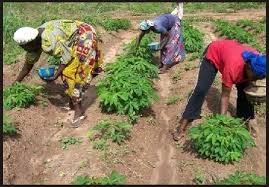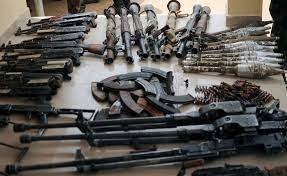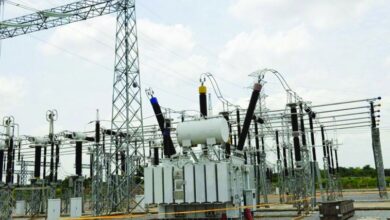It’s another planting season

The first rains of the new year have started, marking the beginning of another planting season. It is another annual opportunity provided by mother nature to solve the problem of hunger on earth. But are Nigerians whose population is devastated by extreme hunger, ready to seize this opportunity of another planting season to try to feed ourselves in 2025?
In the 2024 Global Hunger Index, GHI, out of 127 countries, Nigeria ranked 110th, scoring 28.8, which indicated an alarming level of hunger in the country. When the 2025 GHI is released, Nigeria is most likely to dip further down the abyss of hunger.
Nigerians are very innovative people. Since terrorists have driven many farmers away from their farmlands, some Nigerians have come up with the idea of planting crops like yams and potatoes in sacks filled with soil and kept within their residences. Others have taken to snail, rabbit and grasscutter farming.
From our observation on the social media where some people already practicing these methods of farming share their ideas, many Nigerians are willing to engage in these new small scale farmings. But we found, based on the type of questions they ask, that they need help.
For instance, those who want to try these new farming ideas want to know the type of soil to use in the sacks; whether it is best to use yam seedlings, or cut big tubers of yams into small pieces; and whether the cut side of the piece of yam should be placed facing up or down in the soil.
Many years ago when Nigeria was relatively functional, those were the type of questions answered by Agricultural Extension Officers, AEOs, from the federal and state ministries of Agriculture. AEOs were professionals who connect farmers with agricultural research and information. They also help farmers make decisions to improve productivity and sustainability.
Those AEOs answered such questions on radio and TV programs usually sponsored by federal or state ministries of agriculture. If those AEOs still exist in the ministries of agriculture, one wonders what they do nowadays; do they sit in their tastefully furnished offices and collect salaries at month end as workers do at the Nigeria’s moribund petrol refineries which have not produced a drop of petrol for decades?
A government serious about combating the scourge of hunger in the land should have by now been providing improved crop seedlings to those who have shown interests in farming. By now, government should have been seriously involved in campaigns encouraging the people to adopt these new small scale farming and to convert every available space within their residences into mini farms.
Such campaigns to mobilise the people to adopt a good idea or practice fall within the mandate of the National Orientation Agency, NOA. Again, question needs to be asked on the whereabouts of NOA and what they do nowadays.
“Little drops of water,” as Julia Carney wrote in her poem, “make a mighty ocean.” If government and Nigerians adopt the ideas offered here, it will help to reduce hunger in the land.




